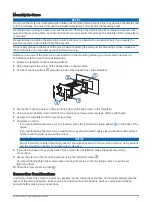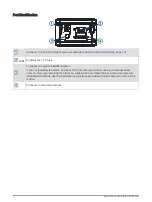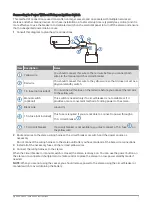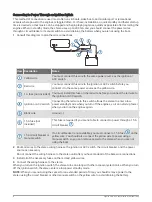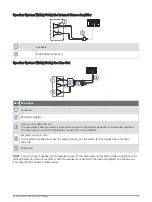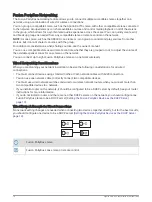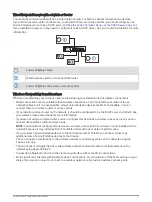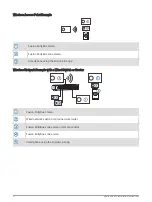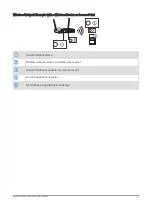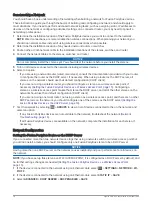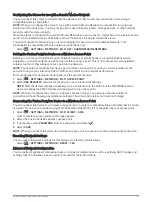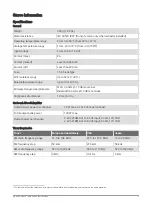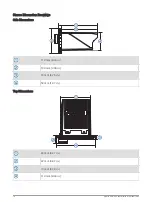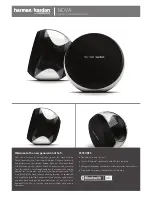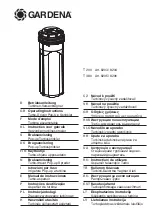
Connecting to Power Without Using an Ignition Switch
This method of connection is used most often on larger vessels and on vessels with multiple networked
stereos and other marine devices. For these installations, a faster startup time is typically less critical, and it is
more effective to use the breaker or a dedicated switch on the electrical panel to turn off the stereo and ensure
that no unexpected power drain occurs.
1 Consult this diagram to plan the wire connections.
Item Description
Notes
Yellow wire
You should connect this wire to the red wire before you connect both
wires to the manual switch or circuit breaker.
Red wire
You should connect this wire to the yellow wire so that it does not act as a
physical standby switch.
1 A fuse (not included)
You must install this fuse on the red wire before you connect the red wire
to the yellow wire.
Manual switch
(optional)
This switch is needed only if a circuit breaker is not available or if it
provides a more convenient method of cutting power to the stereo.
Black wire
Ground (-)
15 A fuse (not included)
This fuse is required if you are not able to connect to power through a
15 A circuit breaker
.
15 A circuit breaker
If a circuit breaker is not available, you must connect a 15 A fuse
on
the yellow wire
2 Route all wires to the stereo wiring harness, the circuit breaker or switch, and the power source as
necessary.
Do not connect the wiring harness to the stereo until after you have made all of the bare wire connections.
3 Install all of the necessary fuses on the red and yellow wires.
4 Connect the wiring harness to the stereo.
When the circuit breaker or manual switch is closed, the stereo is always on. You can use the power button on
the stereo or a connected chartplotter or remote control to place the stereo in a low-power standby mode if
needed.
NOTE: When you are not using the vessel, you should remove power to the stereo using the circuit breaker or
manual switch to avoid draining the battery.
Apollo SRX400 Installation Instructions
7



